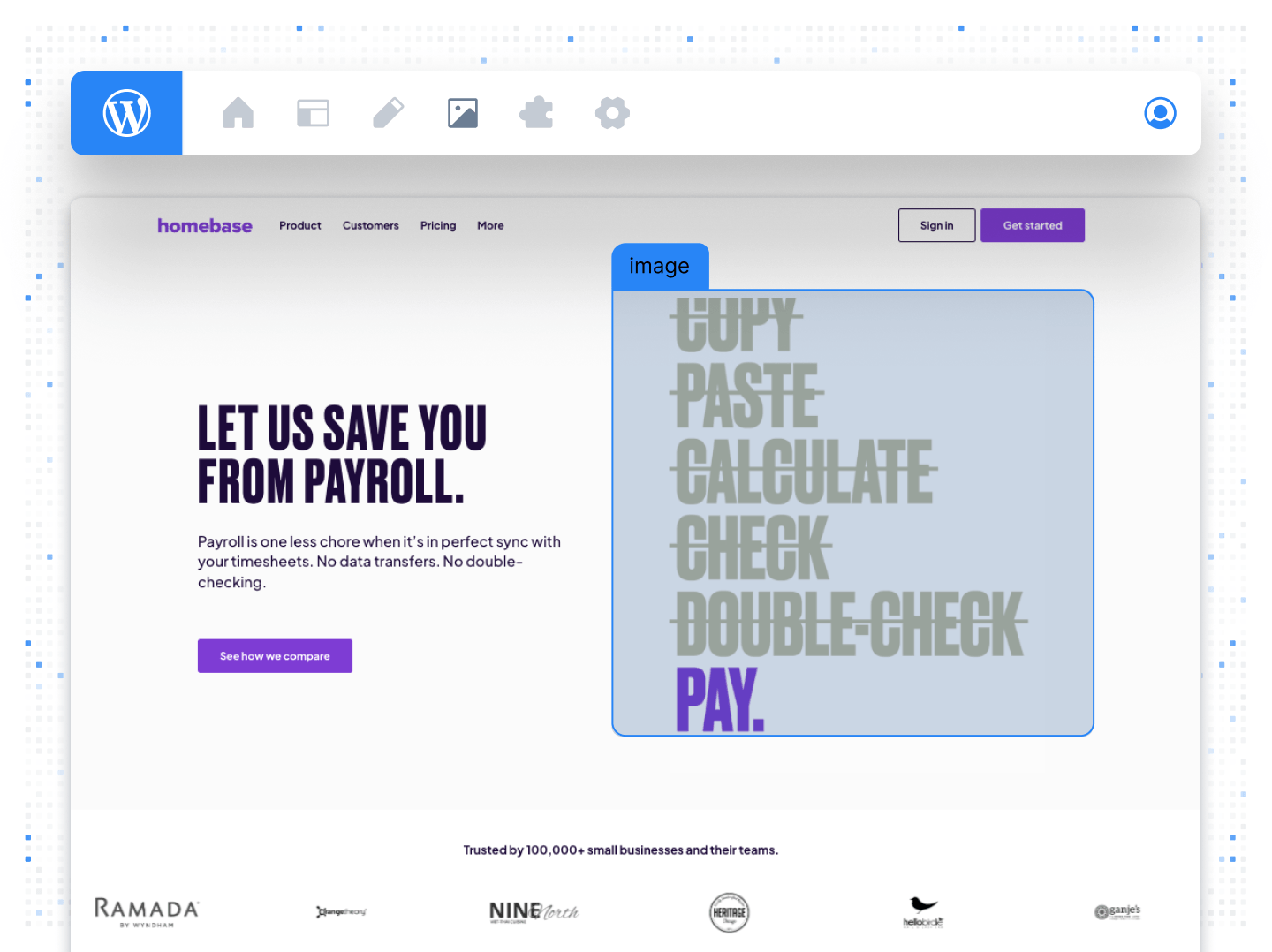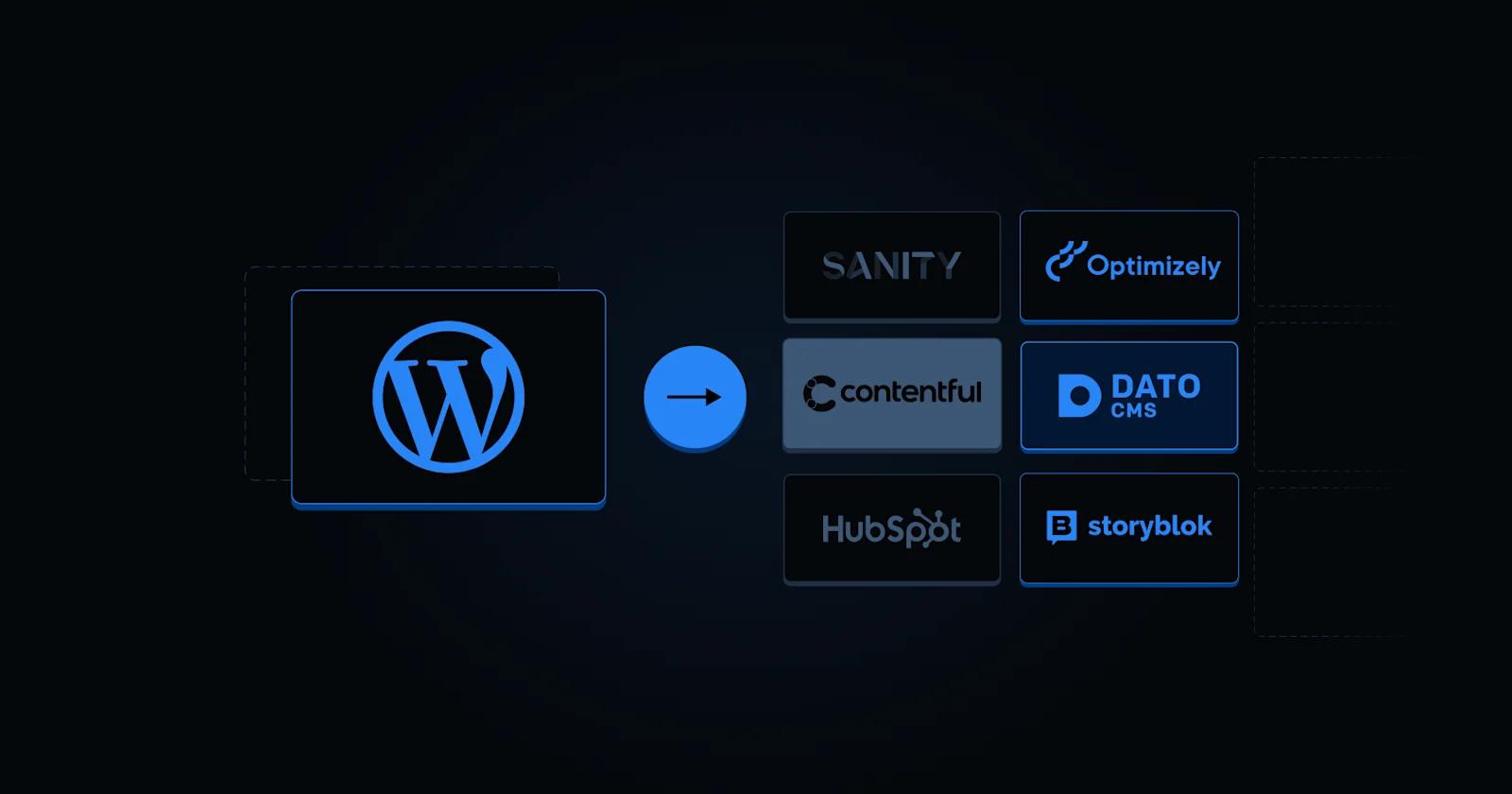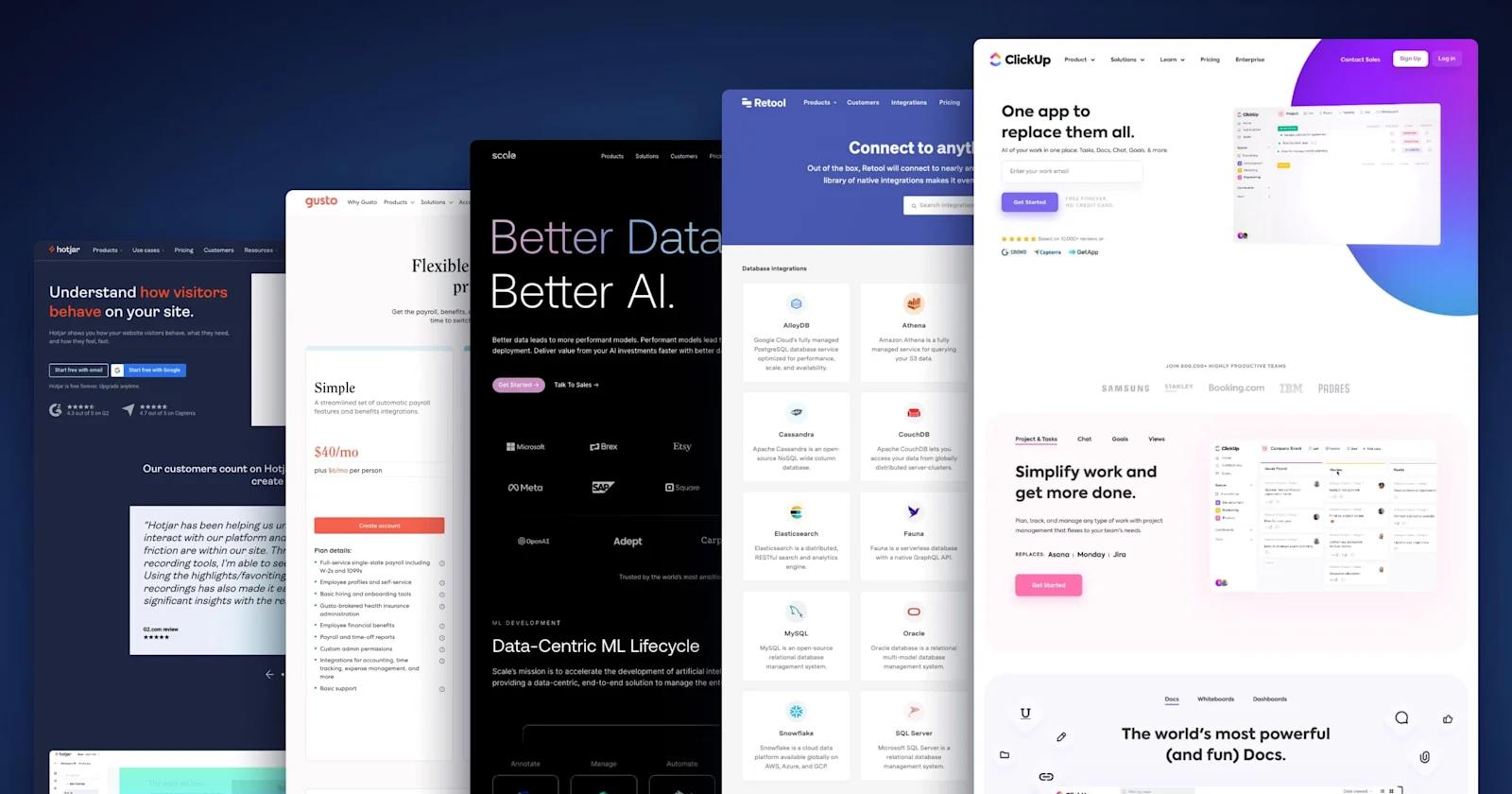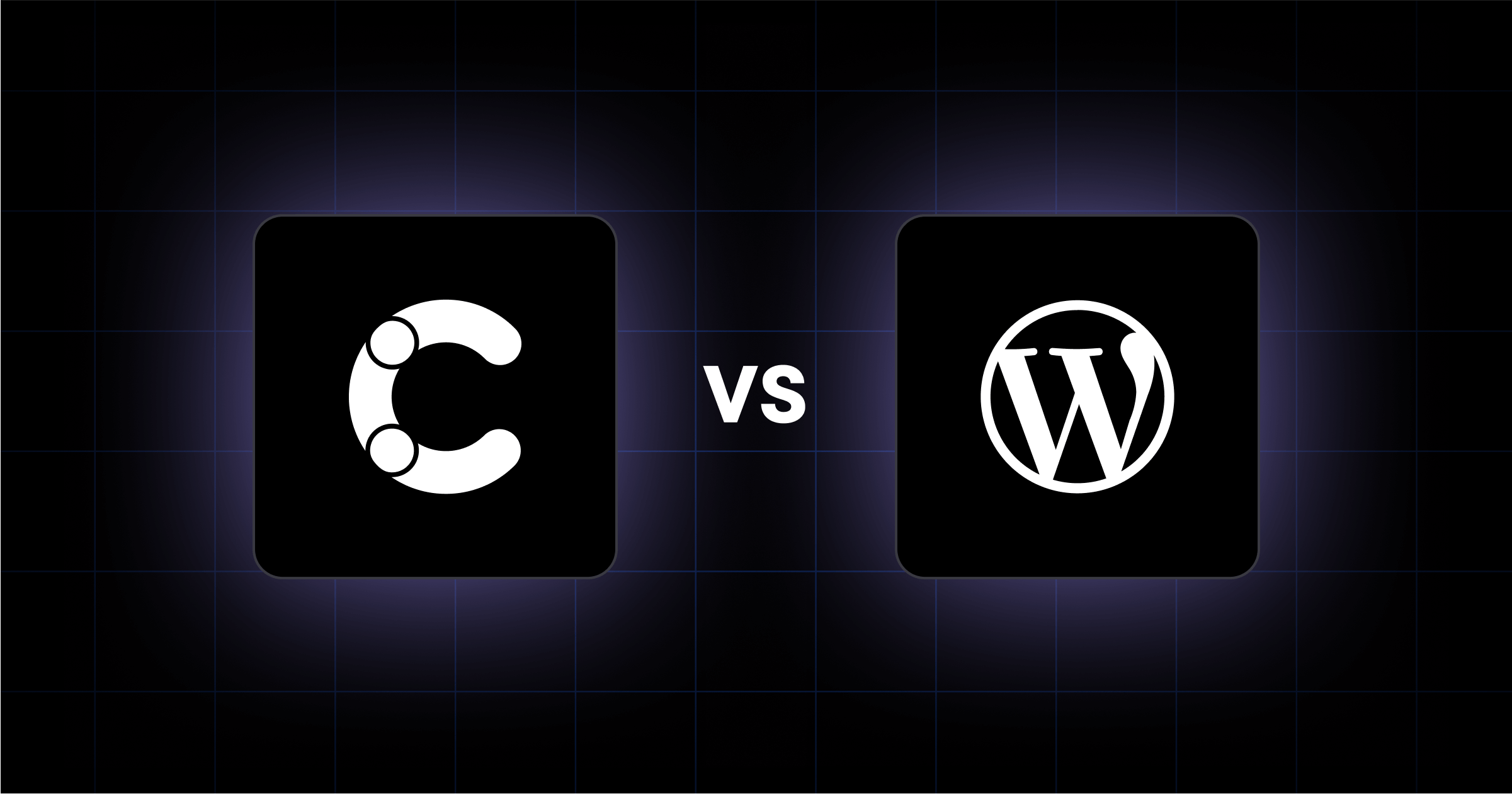Who is WordPress best suited for?
In our experience, WordPress works well for early-stage startups with lean marketing teams managing simple marketing websites. If your organization launched on WordPress and the website has remained relatively unchanged, you can likely continue operating smoothly on the same tech stack while refining the presentation layer to improve design and user experience.
However, as marketing efforts scale and the need for greater flexibility, performance, and personalization grows, WordPress can become a bottleneck.
That being said, WordPress will work for you if:
You don’t require complex integrations or advanced functionality. WordPress is best for businesses that don’t rely on extensive integrations with CRMs, product databases, or other enterprise tools. While plugins can fill some gaps, they often introduce maintenance challenges and performance issues at scale.
Your website traffic and content demands are relatively low.If your website isn’t handling millions of visitors per month or complex, dynamic content structures, WordPress’s performance limitations (and costs) won’t be as much of a concern. However, as traffic scales, businesses may need to explore more modern, scalable solutions.
Your existing WordPress site is well-maintained and free of technical debt.
If your WordPress instance has remained organized—without an excessive number of outdated plugins, bloated themes, or unnecessary customizations—it can continue to serve your business effectively. However, if years of quick fixes and ad-hoc updates have led to performance issues and tangled content, it may be time to consider a fresh start.
Similar to Webflow, a WordPress site delivers a strong foundation for B2B startups. However, if your business demands high performance, integrations, and flexibility, it may be time to explore headless CMS solutions.
When should I consider headless CMS solutions over WordPress?
A headless CMS separates content from the frontend, and enables greater control over the user experience. We think it’s best to consider migrating to a headless CMS when:
You need a high-performance web experience
Headless architectures deliver faster load times and smoother interactions. They also optimize performance by reducing backend bottlenecks.
Your site requires omnichannel content distribution
A headless CMS makes it easier to deliver content across multiple platforms (web, mobile apps, IoT devices, etc.). This creates a consistent brand experience across all touchpoints.
You’re investing in modern frontend frameworks
If your developers prefer Next.js, React, or Vue.js, a headless CMS allows full flexibility. It also supports a component-driven approach, making development more efficient and scalable.
Scalability and security are top priorities
With a decoupled architecture, you can mitigate some of WordPress's security concerns while scaling more efficiently. This separation also reduces the attack surface, which improves your overall website security.
What should I consider before moving from WordPress to a headless CMS?
Migrating your website to a headless CMS requires careful planning. Here are key factors you should consider before making the switch:
1. Infrastructure costs
While headless solutions provide flexibility, they often involve higher infrastructure and hosting expenses compared to traditional WordPress setups.
2. Content management workflow changes
Editors accustomed to WordPress may face a learning curve with headless CMS interfaces, requiring training and process adjustments.
3. SEO and performance considerations
A headless CMS improves website speed, but you need to implement technical SEO best practices to maintain or improve search rankings.
At Webstacks, we help businesses evaluate whether headless is the right move, and support them with a seamless transition when it is.
How can Webstacks help businesses optimize or migrate from WordPress?
Whether you want to get more out of WordPress or transition to a headless CMS like Contentful, Sanity, or Builder.io, Webstacks is here to guide you. As a leading B2B WordPress agency, we offer custom WordPress design and development, and build optimized websites that prioritize performance and scalability. We also specialize in performance tuning, speeding up your site with caching, CDN integration, and code optimizations.
Our expertise extends to creating custom integrations that connect WordPress with your existing tech stack. If you're considering a headless approach, we can analyze your readiness, plan the transition, and implement a best-in-class headless CMS solution.









